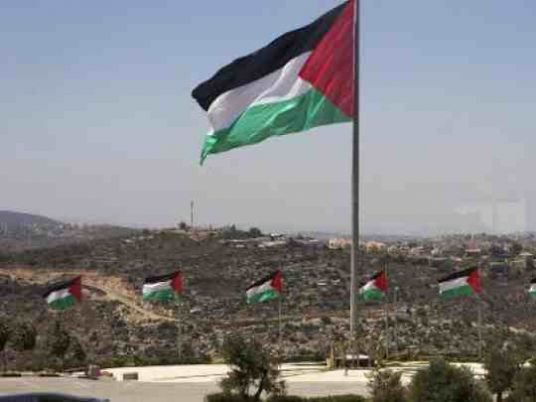
The UN General Assembly voted Thursday to allow the Palestinians to raise their flag at its headquarters in a diplomatic victory in their campaign for statehood.
A resolution was adopted by member states with 119 in favor, eight voting against — including Israel and the United States — and 45 abstentions.
The text allows the flags of Palestine and the Holy See — both of which have non-member observer status — to be hoisted alongside those of the member states.
The world body now has 20 days to implement the move, which would be in time for a visit by Palestinian president Mahmud Abbas on September 30.
"It is a symbolic thing, but another step to solidify the pillars of the state of Palestine in the international arena," said Riyad Mansour, the Palestinian representative to the UN.
In Paris, Palestinian prime minister Rami Hamdallah called the flag vote "a step on the road towards Palestine becoming a full member of the United Nations."
He spoke after meeting with French Prime Minister Manuel Valls and expressed hope France would one day recognize a Palestinian state — something it has so far refused to do.
– Europeans divided –
European nations were divided on the move, with France, Russia and Sweden voting in favor while others such as Britain, Germany, Austria, Finland, the Netherlands and Cyprus abstained.
French ambassador Francois Delattre stated that "this flag is a powerful symbol, a glimmer of hope," for the Palestinians amid broken-down peace talks.
China also voted in favor of the measure.
Mansour said the initiative had the potential to "give our people some hope that the international community is still supporting the independence of the state of Palestine.
"Things are bleak, gloomy, the political process is dead, Gaza is being suffocated. This flag resolution is like the small light of a candle to keep hope alive for the Palestinian people."
Mansour said Palestinians had been lobbying intensively in recent weeks to round up the needed votes.
When the Palestinians gained non-member observer status on November 29, 2012, it was by a vote in the General Assembly of 138-9, with 41 abstentions.
– US, Israel opposed –
Both Israel and the United States firmly opposed the move. Canada and Australia also voted against the measure.
"Raising the Palestinian flag outside the UN headquarters is not an alternative to negotiations (between Palestinians and Israel), and will not bring the parties closer to peace," US ambassador Samantha Power said.
Israel ambassador Ron Prosor said that the Palestinians "cynically manipulate the UN to score political points."
According to Prosor, "no vote can turn an empty symbolic gesture into a state.
"The international community must make it clear to the Palestinians that the only way to achieve statehood is through direct negotiations."
Prosor said that the vote "may serve the interests of Palestinian leaders, but it will not help the Palestinian people."
US State Department spokesman Mark Toner called it a "counterproductive" attempt to pursue statehood claims outside of a negotiated settlement.
Israeli-Palestinian peace talks have been comatose since a failed US diplomatic effort in April last year, and a war in the Gaza Strip last summer left 2,200 Palestinians dead.
Abbas and Israeli Prime Minister Benjamin Netanyahu are among world leaders converging on UN headquarters from September 25 for an anti-poverty summit and the annual General Assembly debate.
Abbas is scheduled to speak to the world body on September 30.
Pope Francis is to make a much-anticipated address on September 25. The Vatican has officially recognized Palestine as a state.
Ahead of the vote the Vatican's UN representative, Bernardito Auza, told reporters that the Holy See did not intend to raise the flag ahead of the pope's upcoming visit, but did not rule out doing it in the future.
The Palestinian and Holy See flags can be raised outside official United Nations buildings, including in Geneva and Vienna.
